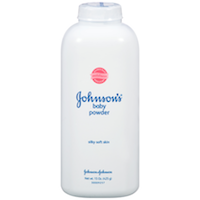
The South Carolina case was filed by Boyd-Bostic’s family. Ms. Boyd-Bostic died at the age of just 30 after developing a rare form of mesothelioma which resulted in cancer of the lining of her heart. Her husband asserts that the cancer was caused by asbestos fibers present in the talc-based baby powder she used.
Plaintiffs in Johnson & Johnson talc asbestos cases allege that the two minerals are too tightly intertwined to be effectively separated during the talc mining process. These fibers stay with the talc and make their way into bottles of Johnson & Johnson’s Baby Powder and then into people’s homes. If the allegations are true, this would presumably put millions of families on edge and wondering if a product they’d depended on through generations wasn’t actually causing life-threatening harm to themselves and their loved ones.
Ms. Boyd-Bostic’s case is not the first alleging a link between talc and asbestos. Earlier this year, New Jersey resident Stephen Lanzo was awarded over $100 million in compensatory and punitive damages when a jury found that his mesothelioma was caused by asbestos present in Johnson & Johnson talc products.
The Boyd-Bostic case, as with the Lanzo case, brought a defiant rebuke of the accusations from Johnson & Johnson officials. The company has repeatedly issued statements that – unlike many corporate statements in these kinds of cases – leave no room for interpretation. “We’re disappointed the jury did not reach a unanimous verdict for Johnson & Johnson,” said a company spokeswoman. “The talc in Johnson’s Baby Powder does not contain asbestos which is supported by more than 50 years of independent, non-litigation driven scientific evaluations.”
As the number of talc asbestos cases increases, customers wait to find out whether they’ve spent years unintentionally exposing their families to a dangerous carcinogen while the company continues to deny that a problem ever existed.
